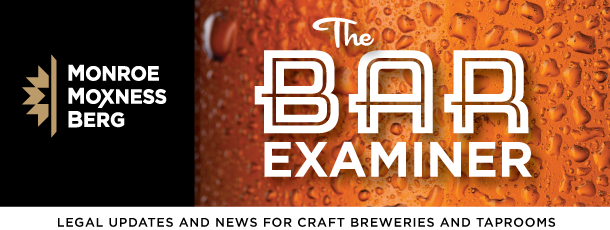In March 2018, the Hennepin County District Court approved a settlement in a class action lawsuit against Surly Brewing Company in Minneapolis. The settlement is noteworthy not only because of its size – $2.5 Million – but also for its lessons regarding tip pooling.
Minnesota law contains a specific provision that gratuities received by an employee for personal services are the sole property of the employee. The Minnesota statute provides that employers may not require employees to contribute or share gratuities. However, employees may enter into voluntary sharing agreements so long as the employer does not coerce or participate in the sharing arrangement.
In 2016, an employee of Surly Brewing brought a class action lawsuit contending that the three versions of a tip-pooling arrangement for Surly’s servers and bartenders over the years violated Minnesota law. The plaintiff’s theory was that Surly’s tip-pooling arrangement operated to benefit the company financially because it resulted in front-of-house employees helping to pay for back-of-house employees and thereby reduce overall payroll costs. Surly countered that there was no malice in its tip-pooling arrangement and that instead it promoted teamwork and excellent customer service.
In a July 2017 decision, the court sided with the employees and concluded that all three iterations of Surly’s tip-pooling arrangements violated the Minnesota statute.
The first tip-sharing arrangement began when Surly opened its beer hall in 2014. There were separate tip pools for bartenders and servers. The court concluded there were several problems with the original arrangement, including the fact that employees did not design, choose, or have input into the operation of the tip pool. All servers and bartenders were required at the end of each shift to deposit all credit card and cash tips into the pool. Because this arrangement was not approved by each individual employee, the court concluded it was not voluntary. Also, the fact that Surly managers developed and implemented the original tip pool further showed impermissible employer participation in the pool.
The second tip-sharing arrangement came after a vote by Surly employees in 2015. The server and bartender pools were combined into one pool. A large majority of employees voted in favor of the modified arrangement. The court nevertheless found the modified arrangement was in violation of Minnesota law because the meeting at which the vote took place was a mandatory staff meeting called by Surly managers, at which Surly created the agenda, selected the speakers, and determined who could vote. Surly managers spoke at the meeting in favor of the modified pool. They also drafted the ballots for the election, counted the votes, and announced the results. After the meeting, Surly presented the employees with an acknowledgement form asking them to honor the majority vote regarding the tip pool even if they disagreed with the outcome. The court concluded that all of these actions by Surly constituted “participation” in the tip pool process and rendered the tip pool arrangement unlawful. Surly argued that the vast majority of employees had voted in favor of the tip pool arrangement, but the court found this fact irrelevant under the statute.
A third tip pool arrangement began in late 2015. Surly once again scheduled an employee meeting to discuss tip pooling at which Surly took a more hands-off approach to discussion. Nevertheless, the court found the third iteration to violate Minnesota law as well, because Surly directed servers and bartenders to select representatives to speak for them, communicated the company’s desire that employees choose one tip pool system applicable to all employees, and set the agenda for the meeting. Surly argued that some minimal management involvement was necessary in order to organize the meeting and give direction to the discussion. The court responded that when dealing with employee discussions about tip pooling, the employer should “say nothing, do nothing, and wait for [front-of-house] staff to address the issue themselves.”
After the court’s decision that Surly had improperly participated in the tip-pooling process, the case progressed and was eventually settled in March 2018. Roughly 140 bartenders and servers will participate in the recovery, each to receive an estimated average amount of $11,600. The lead plaintiff will receive a $15,000 service award for representing the class.
The Surly Brewing case presents a clash between a well-established Minnesota statute and modern trends regarding teamwork and collaboration in the workplace. Surly argued, and many Surly employees agreed, that a tip-pooling arrangement promoted teamwork better than a traditional arrangement where front-of-house employees with direct customer contact receive tips and then use their own discretion in deciding whether to share tips with back-of-house employees. The court acknowledged that its strict interpretation of Minnesota law might conflict with modern trends of teamwork, but noted that its function was to enforce statutes as written, not change them. It is possible the Surly Brewing case may prompt calls for legislative action to change the law regarding tip-pooling arrangements. But unless and until the law changes, employers should take a hands-off approach to employee tip-sharing.
